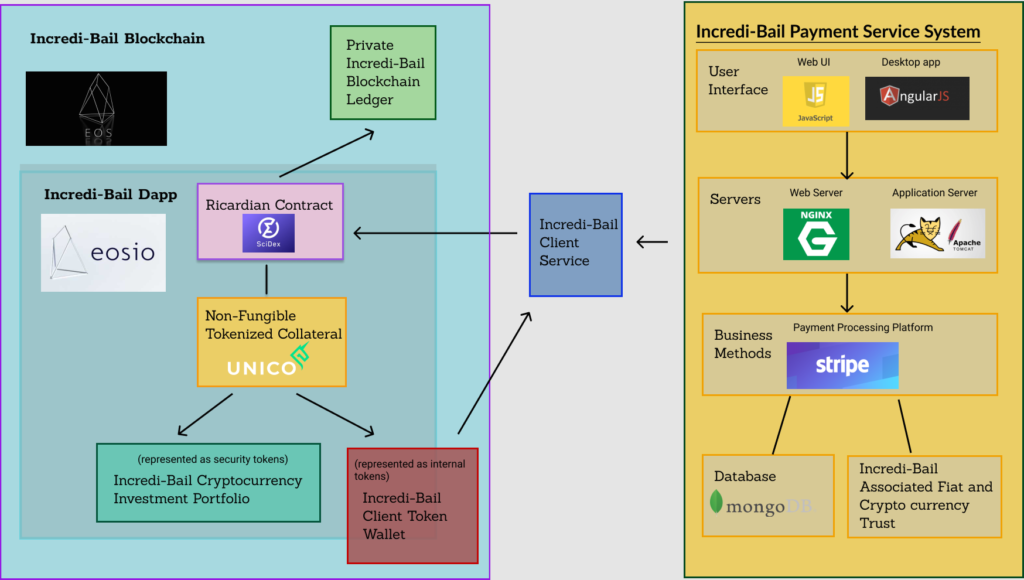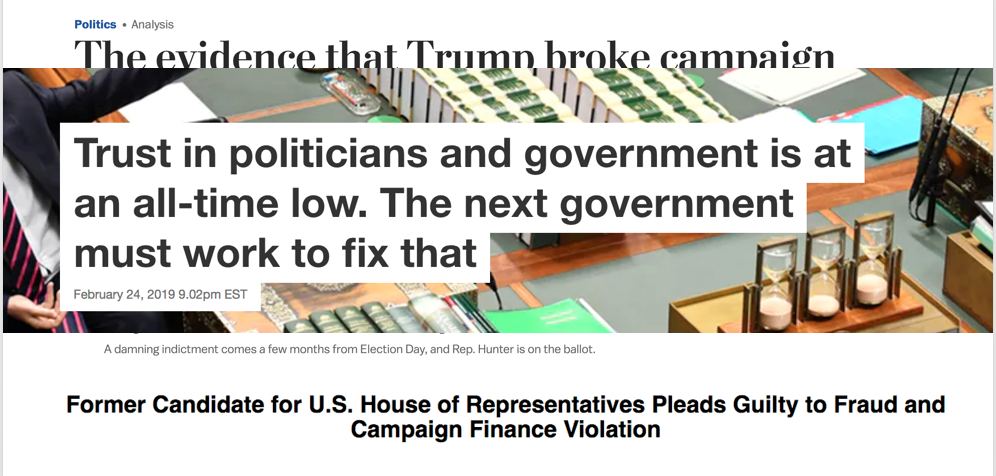Spring Reflections, Fall Futures, and Student Project Highlights
Spring of 2019 was the semester of collaboration and joint ventures for our Blockchain Challenge Lab. We expanded the program to include FinTech, and the new material and domain resulted in a number of novel projects, many of which are highlighted below. We saw increased teamwork across campus with participation by Berkeley Haas staff, including Whitney Hischier and Karin Bauer, who showed up to lecture and judge final student presentations. We also partnered with Blockchain at Berkeley members, who assisted with student project code reviews. Jocelyn Weber, Kartik Mehrotra, Gloria Zhao, and others ensured that there was a synergy between material presented in the course and the Berkeley Blockchain Xcelerator. I was able to mentor a few of the teams and drop by for a lecture on enterprise blockchain and user-centered design.
The fall Blockchain Challenge Lab course is growing and evolving yet again. The working title is:
Disruptive Technologies Challenge Lab — Blockchain, Fintech, AI, IoT, and other emerging technologies driving social change
This is the call to action:
Can blockchain and AI help address climate change? Will another initial coin offering alleviate global poverty? Does the world need a new protocol to avoid an environmental catastrophe? This course will take a contrarian view and start with a social, environmental, political, or cultural problem. Only then will we look at applicable technologies, inventions, and tools to make an impact. We will present an overview of blockchain, fintech, artificial intelligence, internet of things, and other disruptive technologies that have the potential to transform society or reinvent markets.
But before the newly expanded charter takes shape it is time to highlight some of the spring 2019 student projects and successes.
The winner this semester was Emission Coin! They had a sound idea combined with brilliant execution. Everyone knew they were in trouble when they saw this team practice their final pitch at least several times before the last class started. Sejal Mohata, Colson Armacost, Pranav Saravanan, and Souradeep Das created a corporate sustainability play powered by gamification. Departments and employees compete for green credits by carpooling to work, recycling more than their neighbor, and recording their environmental savings on a corporate portal. The blockchain ledger keeps everyone honest and enables the creation of a sustainability metric that can be reported for public relations or government incentives purposes.

One of the more novel ideas was put forth by Incredibail. Governments, including the one in California are considering eliminating bail. It marginalizes those already in a vulnerable state, and the bail bond process imposes high fees and suffers from lack of transparency. In the last blog article, I had articulated the three intrinsic qualities of blockchain as: transparency, peer-to-peer architecture (allowing disintermediation of brokers adding little value), and immutability (making the source of truth safe from hackers, governments, or agitators). This domain seems to fit perfectly, since individuals facing trial could collect funds for release via a peer-to-peer network, save money by not having to pay the bail bondsman broker fees, and create an immutable public record of the transaction. Add an algorithm that gauges flight risk and the use of a Ricardian Contract, and we have our first honorable mention. The team was comprised of: Hagar Ali, David Aguilar, George Zeng, Lucy Chen, Kenneth Wu, and Nancy Wang.

The last project that stirred up interest and controversy was Tokain. Pranav Gulati, Louise Fend, Michael Chang, Sneha Somaya, and Marshall Wu decided to do something about political campaign finance. Fundraising on the blockchain would give voters more comfort about where the candidates’ money came from (not from abroad or shadow interests). The candidates could document their intake and spending, avoiding scandals and pre-empting attacks by rivals. The team had worked on a prototype using BigChainDb and planned to launch a pilot in a local election as their proof of concept.

The SCET Collider Cup is an event where all of the SCET Challenge Lab winners compete against one another. We look forward to another year, where the next crop of innovative projects will get a chance to compete for the main prize. We encourage you to attend this event, but first sign up for the Fall 2019 Challenge Lab featuring Blockchain, Fintech, AI, IoT, and other emerging technologies driving social change.

Luke Kowalski is a lecturer and industry fellow at UC Berkeley.
Spring Reflections, Fall Futures, and Student Project Highlights
Spring of 2019 was the semester of collaboration and joint ventures for our Blockchain Challenge Lab. We expanded the program to include FinTech, and the new material and domain resulted in a number of novel projects, many of which are highlighted below. We saw increased teamwork across campus with participation by Berkeley Haas staff, including Whitney Hischier and Karin Bauer, who showed up to lecture and judge final student presentations. We also partnered with Blockchain at Berkeley members, who assisted with student project code reviews. Jocelyn Weber, Kartik Mehrotra, Gloria Zhao, and others ensured that there was a synergy between material presented in the course and the Berkeley Blockchain Xcelerator. I was able to mentor a few of the teams and drop by for a lecture on enterprise blockchain and user-centered design.
The fall Blockchain Challenge Lab course is growing and evolving yet again. The working title is:
Disruptive Technologies Challenge Lab — Blockchain, Fintech, AI, IoT, and other emerging technologies driving social change
This is the call to action:
Can blockchain and AI help address climate change? Will another initial coin offering alleviate global poverty? Does the world need a new protocol to avoid an environmental catastrophe? This course will take a contrarian view and start with a social, environmental, political, or cultural problem. Only then will we look at applicable technologies, inventions, and tools to make an impact. We will present an overview of blockchain, fintech, artificial intelligence, internet of things, and other disruptive technologies that have the potential to transform society or reinvent markets.
But before the newly expanded charter takes shape it is time to highlight some of the spring 2019 student projects and successes.
The winner this semester was Emission Coin! They had a sound idea combined with brilliant execution. Everyone knew they were in trouble when they saw this team practice their final pitch at least several times before the last class started. Sejal Mohata, Colson Armacost, Pranav Saravanan, and Souradeep Das created a corporate sustainability play powered by gamification. Departments and employees compete for green credits by carpooling to work, recycling more than their neighbor, and recording their environmental savings on a corporate portal. The blockchain ledger keeps everyone honest and enables the creation of a sustainability metric that can be reported for public relations or government incentives purposes.

One of the more novel ideas was put forth by Incredibail. Governments, including the one in California are considering eliminating bail. It marginalizes those already in a vulnerable state, and the bail bond process imposes high fees and suffers from lack of transparency. In the last blog article, I had articulated the three intrinsic qualities of blockchain as: transparency, peer-to-peer architecture (allowing disintermediation of brokers adding little value), and immutability (making the source of truth safe from hackers, governments, or agitators). This domain seems to fit perfectly, since individuals facing trial could collect funds for release via a peer-to-peer network, save money by not having to pay the bail bondsman broker fees, and create an immutable public record of the transaction. Add an algorithm that gauges flight risk and the use of a Ricardian Contract, and we have our first honorable mention. The team was comprised of: Hagar Ali, David Aguilar, George Zeng, Lucy Chen, Kenneth Wu, and Nancy Wang.

The last project that stirred up interest and controversy was Tokain. Pranav Gulati, Louise Fend, Michael Chang, Sneha Somaya, and Marshall Wu decided to do something about political campaign finance. Fundraising on the blockchain would give voters more comfort about where the candidates’ money came from (not from abroad or shadow interests). The candidates could document their intake and spending, avoiding scandals and pre-empting attacks by rivals. The team had worked on a prototype using BigChainDb and planned to launch a pilot in a local election as their proof of concept.

The SCET Collider Cup is an event where all of the SCET Challenge Lab winners compete against one another. We look forward to another year, where the next crop of innovative projects will get a chance to compete for the main prize. We encourage you to attend this event, but first sign up for the Fall 2019 Challenge Lab featuring Blockchain, Fintech, AI, IoT, and other emerging technologies driving social change.

Luke Kowalski is a lecturer and industry fellow at UC Berkeley.


